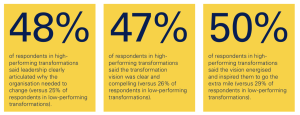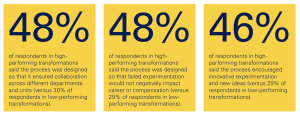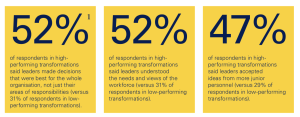Ask 100 people to summarize the current state of the workplace in one word, and it’s a fair guess that the word ‘disruption’ will appear many times.
Disruption has become de rigueur.
It’s not just working practices that have been disrupted; supply chains have been disruption; geopolitical stability has been disrupted, and business maxims have been disrupted too.
Digital transformation is also having a disruptive impact, and all-told, this disruption is creating another popular word of the year: ‘uncertainty.’
“We’re never going to go back to how things were,” cites Alex Schwartz starkly. And boy, isn’t he right?
For those who haven’t heard of him, Schwartz is co-founder of The Disrupted Workforce, a community of like-minded organizations and people exploring the rapidly changing human experience within the workforce. The web-link is well worth a visit.
But disruption is, of course, an extremely nebulous concept.
What it means in the context of HR can often be difficult to put ones finger on.
That’s why TLNT decided to speak exclusively to Schwartz to hear more about what he has to say.
We wanted to lift the lid on disruption; to discuss exactly how it and uncertainty manifests itself; and how HR professionals should go about internalizing it – to turn this non-specific force into a specific action-plan for change.
For those that are familiar with his ideas, Schwartz’s headline notion should come as relief for HR professionals across the board: that now is the time for an even more ’human’ approach to work.
But what does his mean by this? Check out our chat below:
Q: Everyone is worried about what the future of works holds. Are we right to be worried or is this an opportunity for HR to step up?
A: “You can feel the sense of uneasiness right now, but if there’s one thing I want to be, and that’s an optimist. A lot of people mistake the future of work as being about the future of technology, but I see it as ‘the future of the future experience.’ By this I mean it’s how we all tackle what I see as an unmet need of people to have deeper relationships at work. AI is being talked about in terms of making our lives simpler, but it won’t necessarily make our lives less busy. As counter intuitive as it may sound, by pushing tech to a place where we can’t outplace the algorithm, we now need to push ‘work’ back to being about what humans do best.”
Q: Can you explain this a bit further?
A “In-amongst all this technology, what I think we all need to do is elevate the ‘humane’. There’s a dystopian view about where technology is taking us – from stripping out jobs, to having coded bias into selection tools and impending calamity. But even though AI may now be able to pass the Turing Test [a method of inquiry in artificial intelligence for determining whether or not a computer is capable of thinking like a human being], it doesn’t ‘feel’ very human. So there are opportunities within this growing area of technology to actually find our more authentic human voice. As technology advances, we must all embrace our uniqueness. If we turn over our skills to AI, then we’ve lost.”
Q: So in other words, be better at the things AI can’t do as well?
A: “Yes. We need to show continuous and conscious empathy and promote our innovative thinking. We need humans who can nuance, and understand what people are asking for. There are areas where you might want tech, but I think the human element will now become ever-more critical. Human interaction will become increasingly valued, just like water is in the desert.”
Q: This all sounds great, but how does this translate to what leaders and HRDs need to do in their own organizations?
A: “People will be feeling like their jobs are in the cross-hairs. They’ll be worried. People need to feel reassured that their jobs won’t be exterminated. But after that they need equipping to deal with the new challenges the future landscape will bring. We’ve developed our own ‘Future of Work Mindset’ – based around the pillars of being able to ‘explore’, ‘expand’ and ‘evolve’. Within these themes HR leaders need to treat learning as a strategic adventure. The educational structure most employees will have grown up with is dead. Things are changing so fast that HRDs need to create cultures where their workforce is continually curious, and their people want to become life-long learners. The new skill for HR leaders is how they pass this enthusiasm on.
Q: Being more human will certainly appeal to HRDs, but will they have the power to push back on technology when it’s seen to be the great salvation?
A: “It’s a difficult one to answer. HR should be prioritizing upgrading human intelligence, experimentation, being human-centric, and prioritizing human intelligence as the answer to innovation and new ideas. To do this, companies first need to stop being so transactional. We’ve got so used to technology giving us quick answers, but we need to row back on this, and learn to expect innovations more from our human interactions. Fortunately, I’m still optimistic that this is possible. Covid-19 showed us how adaptable we could all be. But I think we’re all still trying to work out what our workplaces cultures should be. AI will still be important – it can help solve skills adjacencies, by pulling out additional data. But I hopefully see a world where – if being human is really taken to heart – we’ll actually have better employee retention, because employees’ roles will change, but people are happy with that, because they constantly re-evaluate their skills.”
Still don’t believe the future of work is being more human?
Don’t just trust Schwartz’s word for it.
The University of Oxford and Said Business School recently collaborated with EY to look into just this issue.
The title of their report – ‘The Future of Transformation is Human’ – will give you a big clue about where they think the future direction of work needs to travel in.
It found that:
- Organizations that put humans at the center of their transformation journey were 2.6x more likely to be successful than those that did not (with a 73% chance of success versus a 28% change of success)
- Leaders rank leadership as the number one driver of success when things go right, but number 10 when a transformation under-performs. Workers ranked leadership a number 1 regardless
Here’s some other stats it found that might catch your eye:



